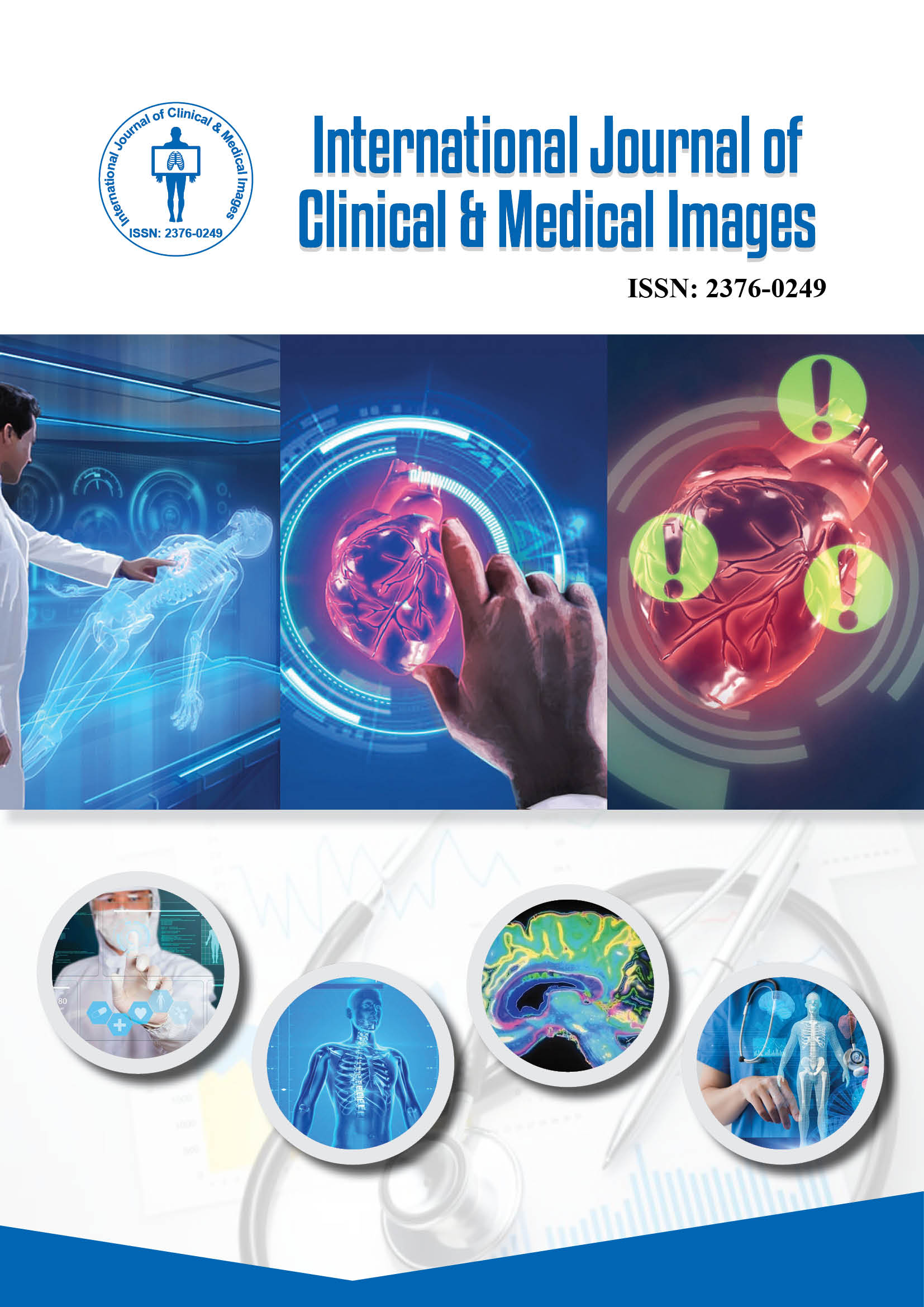2376-0249
Clinical-Medical Image - International Journal of Clinical & Medical Images (2024) Volume 11, Issue 6
Author(s): Singhal Raphael*
Department of Chemistry, GLA University, Uttar Pradesh, India
Received: 01 June, 2024, Manuscript No. ijcmi-24-142590; Editor assigned: 03 June, 2024, Pre QC No. P-142590; Reviewed: 15 June, 2024, QC No. Q-142590; Revised: 22 June, 2024, Manuscript No. R-142590; Published: 29 June, 2024, DOI:10.4172/2376-0249.1000964
Citation: Raphael S. (2024) Advances in Molecular Imaging for Cancer Diagnosis and Treatment. Int J Clin Med Imaging 11: 964.
Copyright: © 2024 Raphael S. This is an open-access article distributed under the terms of the Creative Commons Attribution License, which permits unrestricted use, distribution, and reproduction in any medium, provided the original author and source are credited.
Molecular imaging has revolutionized cancer diagnosis and treatment by enabling precise visualization and characterization of biological processes at the molecular and cellular levels. This manuscript explores recent advances in molecular imaging techniques, focusing on their applications in oncology. It discusses the role of various imaging modalities such as Positron Emission Tomography (PET), Single-Photon Emission Computed Tomography (SPECT), Magnetic Resonance Imaging (MRI), and optical imaging in enhancing early detection, accurate staging, treatment planning, and monitoring of therapeutic responses in cancer patients. Moreover, the manuscript highlights emerging trends and future directions in the field, emphasizing the potential for personalized medicine and improved outcomes through the integration of molecular imaging into clinical practice. Cancer continues to be a significant global health challenge, demanding innovative approaches for its diagnosis and treatment. Over the past few decades, molecular imaging has emerged as a powerful tool in the armamentarium against cancer, allowing clinicians to visualize and analyze molecular and cellular processes in vivo with unprecedented detail and accuracy. By harnessing various imaging modalities, researchers and clinicians can not only detect tumors at their earliest stages but also assess their biological characteristics, tailor treatment strategies, and monitor therapeutic responses in real-time [1].
Complementary to PET, Single-Photon Emission Computed Tomography (SPECT) provides functional imaging based on gamma-ray emissions from radiotracers, offering insights into physiological processes within tumors. SPECT imaging is particularly valuable in detecting metastases and assessing tumor perfusion, contributing to more comprehensive staging and treatment planning for cancer patients. Advances in SPECT instrumentation and radiotracer design have extended its applications beyond conventional anatomical imaging, paving the way for personalized therapeutic interventions. The integration of molecular imaging into clinical practice has revolutionized cancer management by facilitating early detection strategies, optimizing treatment selection, and predicting patient outcomes. By leveraging molecular signatures specific to each patient’s tumor, clinicians can personalize therapeutic regimens, thereby maximizing treatment efficacy while minimizing adverse effects. This paradigm shift towards precision medicine underscores the importance of molecular imaging as a cornerstone in the multidisciplinary approach to cancer care [2].
Molecular imaging; Cancer diagnosis; Cncer treatment
None.
[1] Raphael MJ, Wildgoose P, Servidio IF, De VMA and Brenner D, et al. (2023). Breaking down barriers to detection and care in early-age-onset colorectal cancer in Canada.
Google Scholar, Crossref, Indexed at
[2] Chang VC, Cotterchio M, De P and Tinmouth J. (2021). Risk factors for early-onset colorectal cancer: A population-based case–control study in Ontario, Canada. Cancer Cause Control 32: 1063-1083.
 Awards Nomination
Awards Nomination

